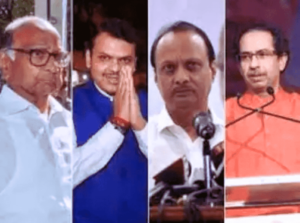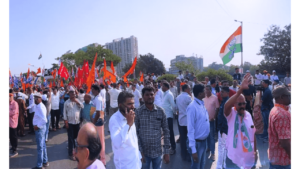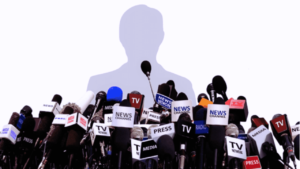Introduction
Mumbai, the financial and cultural capital of India, is famous not only for its vibrant economy and bustling streets, but also for its complex and constantly evolving political landscape. A deep dive into today’s Mumbai politics makes it clear that a confluence of local, state, and national issues shape the political landscape. This article provides an in-depth analysis of the current political climate in Mumbai, exploring the key players, their strategies, and the implications for the city’s future.
Key Political Players in Mumbai

Shiv Sena: The Established Powerhouse
The Uddhav Thackeray-led Shiv Sena remains a dominant force in Mumbai’s political arena. Originally founded by Bal Thackeray, the party has a strong influence in Mumbai, rooted in its local Marathi identity and populist rhetoric. Shiv Sena’s focus on Marathi pride and regionalism has solidified its position as a major player in Mumbai politics. Under Uddhav Thackeray’s leadership, the party has adapted itself to modern political challenges while retaining its core ideologies. Shiv Sena’s role in the coalition government and its involvement in major city development projects reflect its continued importance.
Bharatiya Janata Party (BJP): The Emerging Power
With its national prominence under Prime Minister Narendra Modi, the Bharatiya Janata Party (BJP) is making its mark in Mumbai’s political landscape. The party’s focus on economic development and infrastructure connects with many Mumbai voters. The BJP’s recent electoral successes in the city underscore its growing influence and strategic initiatives, including infrastructure projects and urban development schemes aimed at modernizing Mumbai. The BJP’s approach to politics blends nationalist themes with local concerns, appealing to a broad electorate.
Indian National Congress (INC): The veteran player
The Indian National Congress (INC), once the dominant political force in Mumbai, continues to play a key role despite facing challenges from new parties. The INC’s historical significance and its commitment to secularism and social justice remain central to its political strategy. However, the party is grappling with internal dissent and the need to rejuvenate its image to remain relevant in the contemporary political environment. The INC’s ability to adapt to changing political dynamics will be crucial in shaping its future in Mumbai.
Key political issues shaping Mumbai

Urban infrastructure and development
Urban development is at the forefront of Mumbai’s political discourse. The city’s infrastructure challenges, including traffic congestion, inadequate public transport, and a lack of housing, are important issues for voters. Recent developments include major metro projects and smart city initiatives, which aim to improve living conditions and economic productivity. Political parties in Mumbai are very focused on these issues, as effective solutions can significantly impact their electoral prospects.
Economic inequalities and social welfare
Mumbai’s status as a financial hub is contrasted greatly with its growing economic inequalities. The city is home to some of the wealthiest individuals in the country, as well as considerable poverty and underdevelopment in some areas. Political debate often centers around economic inclusion, social welfare programs, and poverty alleviation strategies. Addressing these inequalities is a major concern for both the Shiv Sena and the BJP, as well as the Congress, which advocates for increased social welfare measures.
Environmental challenges
Mumbai faces significant environmental challenges, including air and water pollution, waste management, and the effects of climate change. Recent initiatives to address these issues include increased investment in green infrastructure and sustainability projects. The city’s political leadership must address these challenges while balancing developmental needs and environmental sustainability. This balancing act is a critical component of political campaigns and governance strategies in Mumbai.
Governance and corruption
Governance and corruption issues pervade Mumbai’s political arena. Recent scandals and allegations of corruption have fueled public debate and political rivalry. The effectiveness of governance, transparency in administrative processes, and anti-corruption measures are important factors influencing public opinion and electoral outcomes. Political parties must address these concerns to build trust and credibility among voters.
Recent political developments and trends
Coalition politics and alliances
Mumbai’s political landscape has witnessed a shift towards coalition and alliance politics. The formation of alliances between various parties, including the Shiv Sena, the NCP (Nationalist Congress Party) and the Congress, reflects the complexities of governance and electoral strategy. These alliances often reflect broader state-level and national political dynamics, which influence policy decisions and electoral outcomes in Mumbai.
Youth and voter engagement
The growing participation of young voters is changing Mumbai’s political dynamics. Young voters are increasingly getting involved in political processes and are vocal on issues such as education, employment opportunities, and digital governance. Political parties are actively working to address the concerns of this demographic, recognizing their growing influence on electoral outcomes.
Influence of national politics
National politics, driven by leaders such as Prime Minister Narendra Modi, significantly impacts Mumbai’s political landscape. National policies and political narratives often resonate at the local level, influencing voter sentiment and party strategies. The interplay between national and local politics shapes the strategies of Mumbai’s political players, influencing their approach to governance and electoral campaigns.
Role of media and public opinion in Mumbai politics

Media influence
The media plays a vital role in shaping Mumbai’s political landscape. With numerous news outlets, both print and digital, providing coverage of political events, media stories influence public perception and political discussion. Television channels, newspapers and online platforms report on political developments, shaping how voters view political parties and their leaders. Media coverage of issues such as corruption, infrastructure projects and policy changes often fuels public debate and influences electoral outcomes.
Social media and digital engagement
Social media has become a powerful tool in Mumbai politics, with platforms such as Twitter, Facebook and Instagram serving as arenas for political campaigning and public engagement. Political parties and candidates use social media to communicate with voters, promote their agenda and garner support. Digital platforms also facilitate real-time interactions between politicians and the public, allowing for immediate feedback and engagement on political issues. This digital engagement has transformed the way political campaigns are conducted and political messages are disseminated.
Public Opinion and Protest
Public opinion is a key factor in Mumbai’s political dynamics. Voter sentiments reflected in opinion polls and public protests can significantly influence political strategies and decision-making. Protests and demonstrations on issues such as housing rights, environmental concerns and social justice highlight public priorities and can put pressure on political leaders to address these issues. Understanding and responding to public opinion is crucial for political parties seeking to gain or maintain electoral support.
Implications for Future Political Strategies
Addressing Urban Challenges
Political parties in Mumbai must focus on addressing the city’s urban challenges to remain competitive. Effective strategies to tackle issues such as traffic congestion, public transport and housing shortages will be crucial in shaping future political success. Investment in modern infrastructure, efficient public services and sustainable urban planning are essential to meet the needs of Mumbai’s growing population and gain voter support.
Promote social welfare programs
The implementation of comprehensive social welfare programs aimed at addressing economic disparities and social inequalities will be crucial for political parties. Programs targeting education, healthcare, and poverty alleviation can enhance the quality of life of Mumbai residents and improve public perception of political leaders. Political parties should prioritize these issues and develop effective policies to address the needs of marginalized communities.
Promote transparency and anti-corruption
To build trust and credibility, political parties should focus on transparency and anti-corruption measures. Addressing corruption allegations and implementing strong governance practices will be crucial in maintaining public confidence. Political leaders should promote accountability, ethical conduct, and transparent decision-making processes to strengthen their position and ensure effective governance.
Connect with the younger demographic
Connecting with the younger demographic will be crucial for political parties seeking to secure future electoral success. Understanding the concerns and aspirations of young voters, such as employment opportunities, educational progress and digital access, will help parties formulate relevant policies and connect with this influential segment of the electorate. Effective engagement with youth can also lead to increased voter participation and support.
Conclusion
Mumbai’s political landscape is characterized by a complex interplay of local, state and national factors. The city’s major political players, including the Shiv Sena, the BJP and the Congress, each contribute to the dynamic political environment through their policies and strategies. Key issues such as urban infrastructure, economic inequalities, environmental challenges and governance shape political discourse and influence electoral outcomes.
As Mumbai continues to evolve, its political future will be determined by how effectively political parties address these issues and respond to the changing needs of the city’s residents. The role of the media, public opinion and digital engagement will also play a key role in shaping political strategies and influencing voter sentiment.
By understanding current political dynamics and being mindful of emerging trends, political players can navigate Mumbai’s complex political landscape and work towards shaping a prosperous future for the city.
You might like this also :
The Fascinating World of Bollywood: A Deep Dive into India’s Film Industry 2024
The Fascinating World of Bollywood: A Deep Dive into India’s Film Industry 2024
